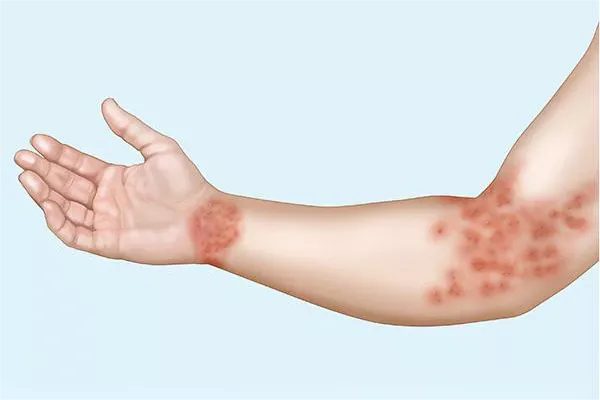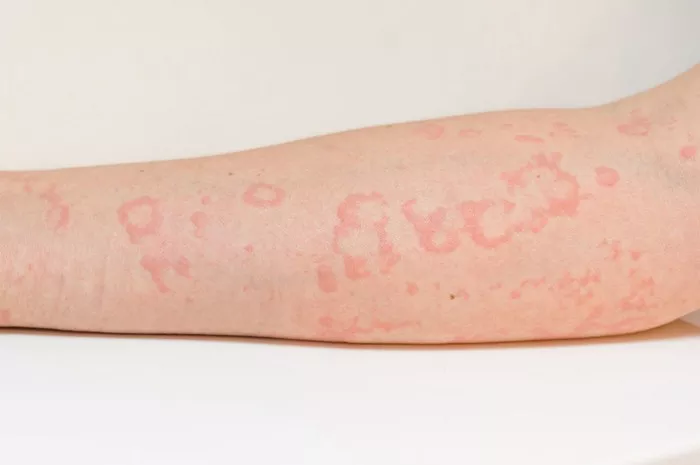Eczema, or atopic dermatitis, is a chronic skin condition characterized by inflamed, itchy, and often dry skin. One of the lingering effects of eczema is hypopigmentation, where patches of skin become lighter than the surrounding areas. This condition can be distressing, particularly for individuals with darker skin tones. Understanding the causes, treatments, and preventive measures for hypopigmentation is crucial for managing its impact and restoring even skin tone.
Understanding Hypopigmentation: Causes and Mechanisms
Hypopigmentation refers to the loss of skin pigment, resulting in lighter patches. In the context of eczema, it often occurs due to inflammation disrupting the normal function of melanocytes, the cells responsible for producing melanin, the pigment that gives skin its color. When the skin is inflamed, melanocytes can be damaged or their activity can be suppressed, leading to a reduction in melanin production.
Several factors contribute to the development of hypopigmentation in eczema patients:
- Inflammation: The primary driver is the inflammatory response in the skin, which can damage melanocytes and reduce melanin production.
- Scratching and Trauma: Chronic scratching and rubbing can exacerbate inflammation and damage the skin, further disrupting pigment production.
- Topical Steroids: While effective in reducing eczema symptoms, prolonged use of topical steroids can sometimes lead to skin thinning and hypopigmentation.
- Infection: Secondary infections can alter the skin’s pigmentation by causing further damage to melanocytes.
Assessing Hypopigmentation: Diagnosis and Evaluation
Accurate diagnosis and evaluation are crucial steps in managing hypopigmentation. Dermatologists use various tools and techniques to assess the extent and severity of pigment loss:
- Clinical Examination: A thorough skin examination helps identify the extent of hypopigmentation and its association with eczema.
- Wood’s Lamp Examination: This technique uses ultraviolet light to highlight areas of pigment loss, providing a clearer picture of hypopigmentation.
- Biopsy: In some cases, a skin biopsy may be performed to rule out other causes of hypopigmentation, such as vitiligo or post-inflammatory hypopigmentation from other sources.
SEE ALSO: How to Heal Eczema Patches
Treatment Strategies for Hypopigmentation
Treating hypopigmentation involves a combination of managing eczema to prevent further pigment loss and employing therapies to restore skin color. Here are the primary treatment strategies:
1. Managing Eczema Effectively
Controlling eczema is the first step in preventing further hypopigmentation. This involves a multi-faceted approach:
- Topical Corticosteroids: These are commonly used to reduce inflammation and control flare-ups. However, their use should be monitored to avoid potential side effects like skin thinning.
- Topical Calcineurin Inhibitors: These non-steroidal medications (e.g., tacrolimus and pimecrolimus) reduce inflammation and can be used on sensitive areas such as the face and eyelids.
- Moisturizers: Regular use of emollients helps maintain skin hydration, reducing itchiness and preventing further skin damage.
- Antihistamines: These can help reduce itching and improve sleep, minimizing the urge to scratch.
- Lifestyle Modifications: Identifying and avoiding triggers, such as certain foods, fabrics, and environmental factors, can help prevent eczema flare-ups.
2. Specific Treatments for Hypopigmentation
Once eczema is under control, targeted treatments for hypopigmentation can be initiated. These treatments aim to stimulate melanin production and restore even skin tone:
Topical Treatments:
- Vitamin D Analogues: Calcipotriol and calcitriol, commonly used for psoriasis, can help stimulate melanocyte activity and melanin production.
- Prostaglandin Analogues: These medications (e.g., bimatoprost) have shown promise in repigmenting skin by enhancing melanocyte proliferation.
- Steroid-Sparing Agents: Topical calcineurin inhibitors, besides controlling eczema, can also promote repigmentation in some cases.
Phototherapy:
- NB-UVB Therapy: Narrowband ultraviolet B (NB-UVB) therapy is effective in stimulating melanocytes and promoting repigmentation. It is often used for larger areas of hypopigmentation.
- Excimer Laser: This targeted form of UVB therapy can be used for smaller, more localized patches of hypopigmentation, providing precise treatment.
Laser Therapy:
- Fractional Laser Resurfacing: This treatment can improve skin texture and stimulate melanocyte activity, promoting even pigmentation. It involves creating micro-injuries in the skin, triggering a healing response and melanocyte activation.
- Microneedling: This procedure uses fine needles to create micro-injuries in the skin, promoting collagen production and potentially enhancing melanocyte activity. It is often combined with topical treatments for better results.
- Chemical Peels: Mild chemical peels, such as glycolic acid or lactic acid, can help improve skin texture and stimulate melanocyte function. They should be used cautiously to avoid further skin irritation.
3. Natural and Alternative Therapies
Several natural and alternative therapies may aid in managing hypopigmentation:
- Aloe Vera: Known for its soothing and healing properties, aloe vera can help reduce inflammation and promote skin healing, potentially aiding in repigmentation.
- Turmeric: Curcumin, the active ingredient in turmeric, has anti-inflammatory and antioxidant properties that may support skin healing and pigmentation.
- Green Tea Extract: Rich in antioxidants, green tea extract can help protect the skin from damage and support overall skin health.
- Vitamin E: Topical vitamin E oil can moisturize the skin and promote healing, potentially aiding in repigmentation.
SEE ALSO: How to Treat Stubborn Eczema
Prevention and Maintenance: Long-Term Strategies
Preventing hypopigmentation involves maintaining healthy skin and managing eczema effectively. Long-term strategies include:
- Consistent Skin Care Routine: Regular use of moisturizers and gentle skin care products helps maintain skin barrier function and prevent flare-ups.
- Sun Protection: Protecting the skin from UV radiation is crucial. Use broad-spectrum sunscreens and wear protective clothing to prevent further pigment loss and sun damage.
- Avoiding Irritants: Identify and avoid known irritants and allergens that can trigger eczema flare-ups.
- Healthy Diet: A balanced diet rich in vitamins and antioxidants supports overall skin health. Omega-3 fatty acids, found in fish and flaxseeds, can help reduce inflammation.
- Regular Follow-Up: Regular check-ups with a dermatologist ensure that eczema and hypopigmentation are managed effectively and any new issues are addressed promptly.
Psychological and Social Support
Dealing with hypopigmentation, especially when it affects visible areas, can have psychological and social implications. Support strategies include:
- Counseling: Professional counseling can help individuals cope with the emotional impact of skin conditions and build self-esteem.
- Support Groups: Connecting with others who have similar experiences can provide a sense of community and support.
- Education: Understanding the condition and treatment options empowers individuals to take an active role in their care.
Conclusion
Hypopigmentation resulting from eczema can be challenging, but with effective management and targeted treatments, significant improvement is achievable. A comprehensive approach that includes controlling eczema, utilizing specific repigmentation therapies, and adopting preventive measures can help restore even skin tone and enhance overall skin health. Collaboration with dermatologists and a commitment to long-term skin care are key to managing hypopigmentation and achieving the best possible outcomes.
Related Topics:


























